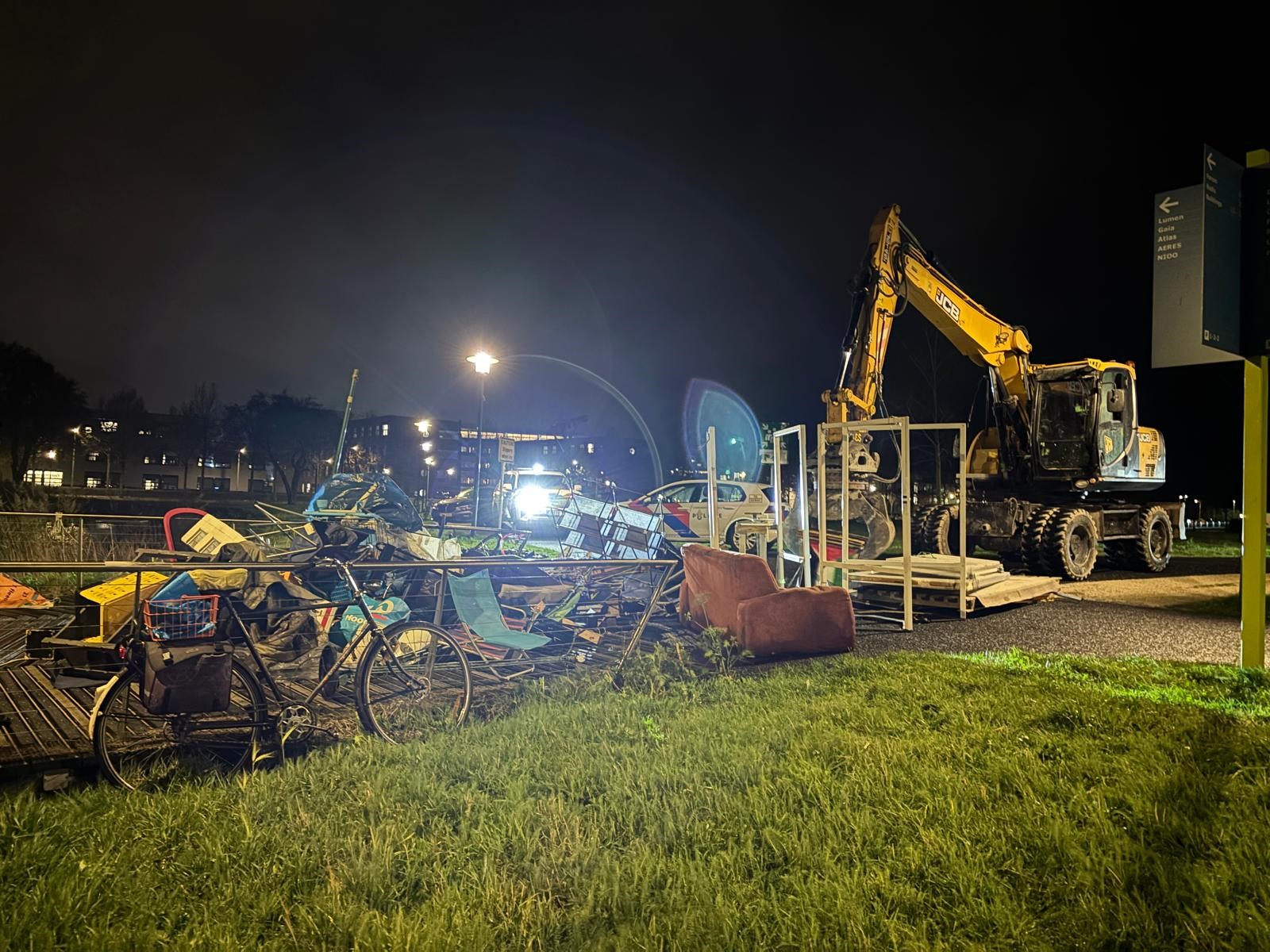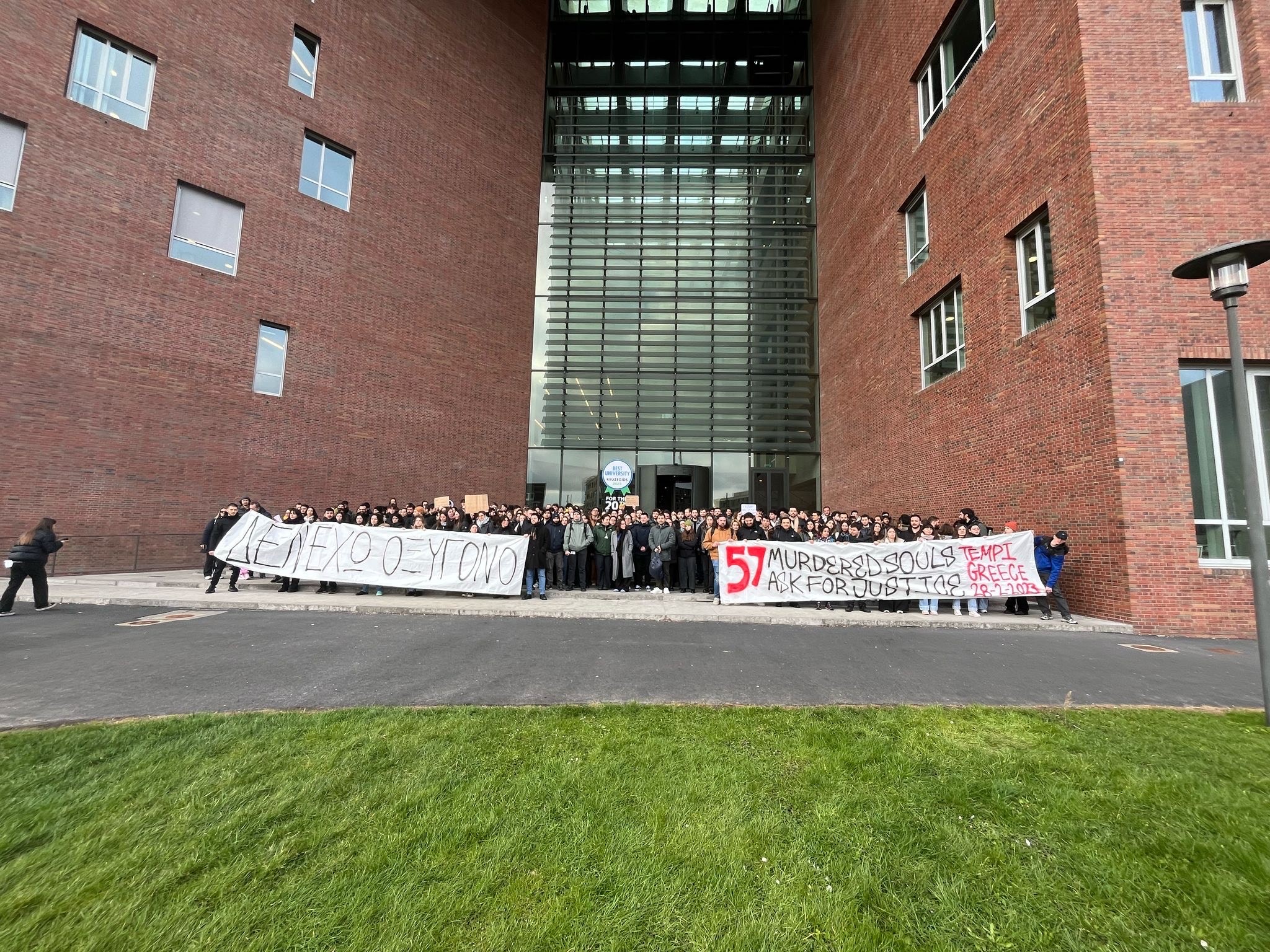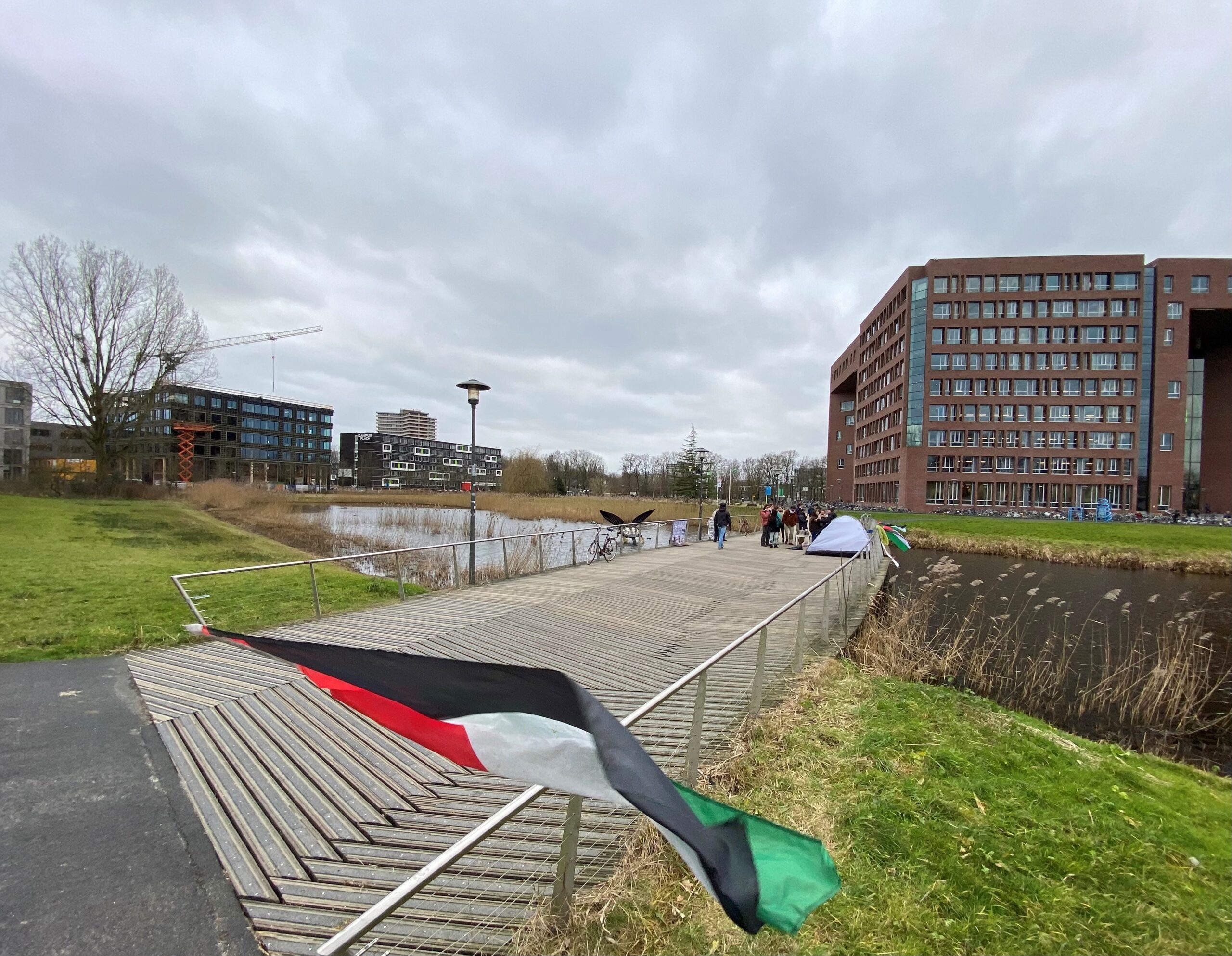The occupation of the bridge between Forum and Orion by pro-Palestinian activists lasted over six months, but came to an end yesterday. What started peacefully at seven o’clock ended with the police taking action. Now we are left with questions. Why so sudden, why were the police called in, was the storm really the reason for clearing the bridge and where was the Executive Board?
Executive Board member Rens Buchwaldt tells us that except for a short meeting where he had to give a speech, he was available until eleven o’clock in the evening to keep an eye on things.
Shouldn’t you have been on the scene? Perhaps that might have de-escalated the situation. ‘I don’t think my presence would have had a de-escalating effect.’
When was the decision taken to start this intervention? ‘At 5:40 yesterday afternoon. We had concerns about the camp. There was only one person still living there permanently. We don’t think that counts as a demonstration any more. We notified him that he had to go, it was becoming inhuman. On Monday, Tuesday and Wednesday last week we tried to hand over the written notification, but we didn’t find him there, until yesterday. When the news came about the storm, I organized a meeting in the morning to discuss the matter — including the question of whether the occupant really wasn’t there.’
‘Then we checked our camera recordings and saw three to four people were there briefly for a few days. But there was no one apart from that, certainly not from Monday onwards. By then, all sorts of things were blowing in the wind: loose bits of tent, shopping trolleys were falling over. It couldn’t continue like that. Previously there were people there we could ask to clear things away, but not any more. So at 5:40 we sent the occupant an e-mail that we would be clearing the camp because of the danger from the storm. Then we set everything in motion by bringing in people specialized in clearing stuff. They arrived about one hour later. The idea was to do it nicely and give people the opportunity to fetch their things themselves.’
So it wasn’t the idea to clear away everything? ‘Yes it was, because everything that was there was a danger.’
But this isn’t the first storm; the camp has survived strong winds before, surely? ‘But during previous storms there were still people in the camp we could have approached.’
So it wasn’t the intention to just remove the dangerous objects? ‘No. Everything was about to blow away. The decision we took was to remove everything. We couldn’t say: let’s leave that tent but not that one. That nuance wasn’t possible.’
Shouldn’t WUR have been clearer before now on the camp and whether or not it could stay? Now the storm is being used as an argument. ‘There had been no one there any more for the past three days. We asked them informally several times to keep things tidy and cleared away. That didn’t happen. They had multiple opportunities.’
So if they had done that, then the camp would still be there? ‘When the storm came, one person would not have been enough to keep the camp safe. And I repeat: we had no one we could address.’
But there are other activists too? ‘We had contact with the occupant.’
Did this happen in consultation with the police and mayor? ‘No, the decision to clear the camp was taken here. We did inform the police and mayor immediately of this fact.’
Why was the camp cleared so late in the evening, in the dark? It sounds a bit shady. ‘I most definitely do not agree with that word! There was a dangerous situation, acute danger. We arranged everything in one hour, including the mobile crane that was used. It wasn’t ready and waiting. No preparations were made at all until about five thirty.’
But there aren’t many people on campus in the evening. ‘There are always people around. That is not a reason not to do it.’
One moment: what is the difference between evicting and clearing? ‘You evict people, but there were no people. So we cleared the camp.’
Did the Board allow for the possibility of the police being involved? ‘Not at that point, at seven o’clock. We did discuss the possibility that some activists might turn up, but we thought it wouldn’t be a big group, because there was no one at the camp.’
How do you feel now about the intervention by the police and the bruises and scrapes some of the activists ended up with? ‘Of course that’s never a good thing — I can be clear about that. We gave the people who turned up the opportunity to take things with them. There were discussions and they were given the time. But unfortunately there were people present wearing face coverings who started filming the people clearing the camp and threatening them. Then the police turned up. Some of the activists attached themselves to stuff and occupied a tent. They were then ordered to leave several times. Then it’s ultimately up to the police to decide what action to take.’
Does the Executive Board still stand by its decision? ‘Absolutely. On 4 July, we concluded the Board and the activists had not got any closer in terms of their demands. Then we asked the demonstrators to clear the bridge and leave. In the following months we had contact in numerous different ways with that one bridge occupant, who did not want to identify himself. We also made it clear we found the living conditions inhuman. It was not intended as a permanent residence.’
What if another camp is set up? ‘The rule is you aren’t allowed to stay overnight on campus. We made an exception at the start of this protest, but we won’t be doing that again.’
What about the activists’ demands, for example to end the collaboration with Israeli institutions? ‘We aren’t going to go into that. We gave an overview previously of all collaborations and their status. We will assess new requests in the same way we do every scientific project.’

 Photo Resource
Photo Resource 

